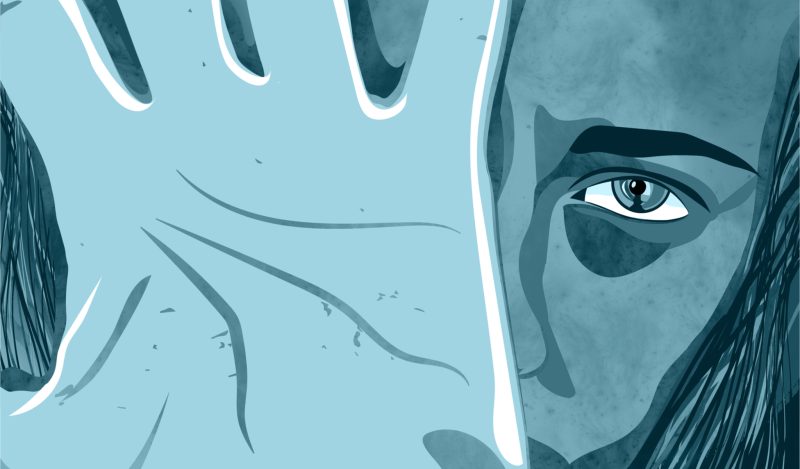Back in March of 2020, I was completely dismayed by the tsunami of mass panic and irrational behavior in my community and around the world, triggered by the looming pandemic threat. I spent a lot of time engaging with others on social media, trying to calm the irrational terror that would ultimately lead to prolonged, disastrous and ineffective shutdowns and the end of life as everyone knew it.
Yes, the news was bad, and the predictions worse, but already it seemed there was no way the virus could be stopped in the wider population, and that draconian measures had the potential to cause tremendous collateral damage without clear benefits. Schools were closing, even with early reports that children were not susceptible to severe disease. Community groups were shutting their doors at a time they were most needed. People were avoiding their relatives, especially the elderly.
There were runs on masks and other PPE even though public health officials had warned of their lack of efficacy. Journalists, doctors, scientists and politicians were giving mixed signals, increasing uncertainty and fueling more panic. Scientific studies were becoming hyperpoliticized. People were terrified and losing control of their lives and their sense of security, and they were willing to do whatever was necessary to get some semblance of it back.
When I talked to people in the community or others on social media, it became clear that many lacked even a basic knowledge of the microbial world around them. Some acted as if even going outside, or being in rooms that had been occupied by others days before, or handling any object touched by another person were hazardous.
Very few individuals understood concepts like age stratification of severe disease, cross-protective immunity, herd immunity, or case or infection fatality rates, and almost no one accepted the fact that the highly transmissible SARS-CoV-2 was already present and spreading at a frequency and speed that would make it virtually unstoppable. They had no clue of the history of pandemic responses and the pre-pandemic consensus of what was achievable and what wasn’t.
Germs and You: A Codependent Relationship
The more I thought about it, the more I realized that living in the modern world has left most people, including journalists, politicians, physicians, and even many scientists, with little or no appreciation of how important their relationship with microbes is to their overall health. Not just bacteria and fungi, but also viruses, too.
Many think the only good bacteria, fungi, or viruses are dead bacteria, fungi, or viruses. That simply isn’t true, because people need to be exposed to, colonized by, and infected with these microbes in order to develop properly, because we are antifragile organisms. We need to be challenged by our environment in order to survive and thrive in it.
This isn’t a new concept, in fact it is a very old one. Yet the concept of antifragility in human health has eroded over time in a modern world of unparalleled abundance and technological advances that have reached a point that many believe a zero-risk, clean world free from infectious disease is within reach. At best, this is unrealistic, and at worst, delusional.
Critics will invariably say that I’m downplaying the threat of serious infections, although I disagree. There are certainly some microbial infections or exposures that can and should be avoided, but this doesn’t change the fact that there are also some that cannot or should not be avoided, or that there are tradeoffs to individual treatments or population-level mitigation that can’t be ignored, but yet clearly have been. Our relationship with microbes is a balancing act that has become decidedly unbalanced.
Brought To You By The Safety Culture
There isn’t one single person or even a small group of people that can be blamed for the disastrous pandemic response. Politicians aren’t powerful enough and government agencies aren’t competent enough to operate as cabals of sophisticated supervillains, even if their ham-handed tyranny seems orchestrated and purposeful to some.
Instead, the root problem behind the disastrous pandemic response in many developed countries is a cultural one, a culture that places safety as one of its highest virtues, and risk as its lowest vice. Certainly, there are a large number of opportunists that have taken advantage of the pandemic to position themselves as heroes of their own movie, to gain political power, or just to make a buck. But those people aren’t the cause of the disease, merely a symptom of its severity. Our safety culture fully enabled their destructive behavior, and that’s where the real problem lies.
In their landmark book, The Coddling of the American Mind, Jonathan Haidt and Greg Lukianoff coined the term “safetyism”, to describe a cultural shift that has placed the avoidance of cognitive dissonance above the pursuit of truth, a shift that has been painfully evident in American universities in the last two decades. In their book, they layer anecdotes with studies detailing how this shift has poisoned the well of academic discovery, and has left universities and college graduates completely incapable of functioning in a pluralistic world full of nuance and uncertainty.
After many years of educating students to see themselves as fragile victims, it should not be surprising that this belief system has infiltrated the broader public, resulting in an unprecedented wave of political polarization. Self-segregation of people into virtual and actual bubbles in social media circles and urban and rural communities has become increasingly evident.
Media organizations specifically cater to political preferences at the ends of the spectrum, careful not to offend their audience’s sensibilities. A tense atmosphere of intellectual risk avoidance has become normal, where crossing established lines results in mob-enforced censorship.
Haidt and Lukianoff explain that humans and their ideas need to be challenged by others, especially at a young age, so that they may develop into rational, tolerant, and well-adjusted adults. They use the immune system as a clear example of an antifragile system; it has memory and responds rapidly and specifically to reinfections after infection or vaccination, and confers protection with less collateral damage. The immune system can’t learn if it isn’t challenged, and neither can people if they are sheltered with their prejudices.
But is the immune system a clear example of an antifragile system that safety culture- reared individuals can understand? I’m an immunologist, and that’s not at all clear after almost two years of the SARS-CoV-2 pandemic. The knowledge that immunity is protective and durable upon recovery from infection in most people is the basis of every textbook in immunology and epidemiology, yet since early 2020 this truth has been summarily jettisoned out of political expedience. As a result, the immune system has gotten a bad rap. Like our microbial environment, the immune system’s reputation is in serious need of rehabilitation.
A Manual for Post-Pandemic Germophobia Therapy
As I pondered how to communicate our antifragile relationship with microbes, the politicization of pandemic science, and the destructive mass panic and safetyist response, I realized I had a unique theme for a book. There were going to be lots of books on how “no one would have died if we had just shut down and masked earlier and harder”, and there would be lots of books on the other side detailing the mass panic, corrupted politics, and resulting collateral destruction of lockdowns, school closures, and mandates. But I suspected there wouldn’t be another book with this unique combination of themes. So I was going to have to write one. And that’s what I’ve been doing since the beginning of 2021. It’s going to be a long process, but I’m enjoying it.
Initially, my efforts were focused on pitching the idea purely as a science communication book. If I had written about many of these topics prior to 2020, they would not have been considered controversial. But they are now. Thus the book was considered political by traditional publishers, and they were less willing to commit to anything they deemed risky (no surprise that there is also a publishing safety culture).
Fortunately, my efforts to introduce these ideas to a wider population attracted the attention of Jeffrey Tucker and the Brownstone Institute. Since September Brownstone has reposted and promoted many of my Substack articles. I’ve been fortunate to meet Brownstone-affiliated scholars and other principled individuals, each committed to standing up for those on the short end of the pandemic response—working class people, children, and those in developing nations.
It is admirable to see this commitment endure despite a constant barrage of withering personal and professional attacks and censorship. A supportive community is essential for these principles to survive.
As a result of this relationship, I’m delighted to announce that the Brownstone Institute will publish Fear of a Microbial Planet: How a Germophobic Safety Culture Makes Us Less Safe, (hopefully) by the end of 2022. This will be one of a select number of books published by Brownstone in the next year or two, and I’m thrilled to have made such a distinguished list.
Some may think the importance of this message will wane as the pandemic comes to an end. But it’s critical to remember, for the pro-lockdown, pro-mandate mob this is now the playbook for any future crisis. Politicians and public health officials are desperate for a victory parade, and they’ll continue to write self-aggrandizing books about how their decisive action and courageous leadership saved the world. That means they are committed to their own distorted version of history, and are also doomed to repeat it.
The only alternative is to voice the truth loudly and repeatedly, in as many accessible and visible forms as possible. And that’s has to happen, because there can be no victory lap.
Join the conversation:

Published under a Creative Commons Attribution 4.0 International License
For reprints, please set the canonical link back to the original Brownstone Institute Article and Author.









